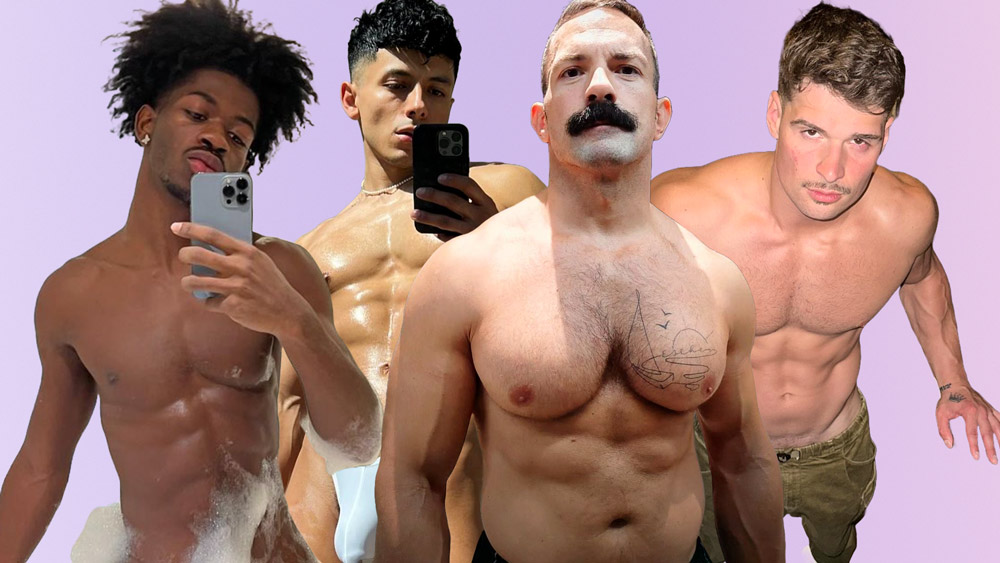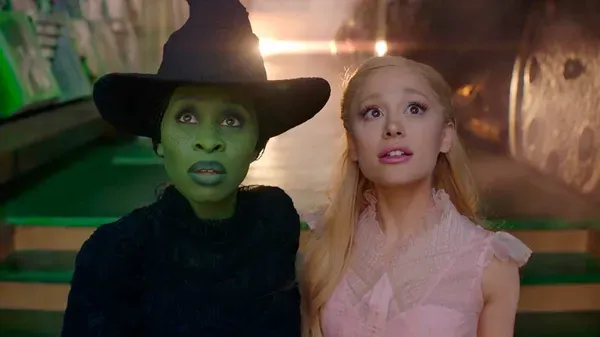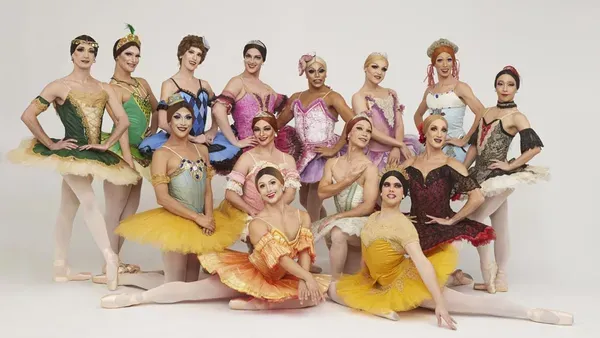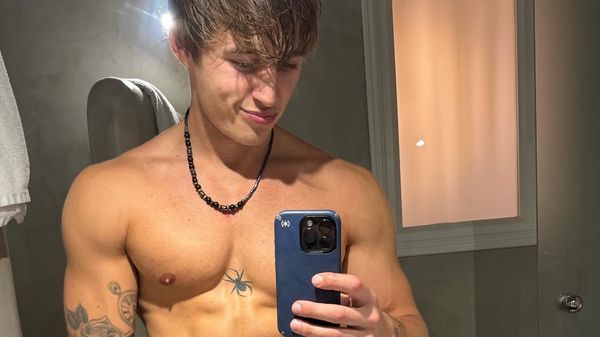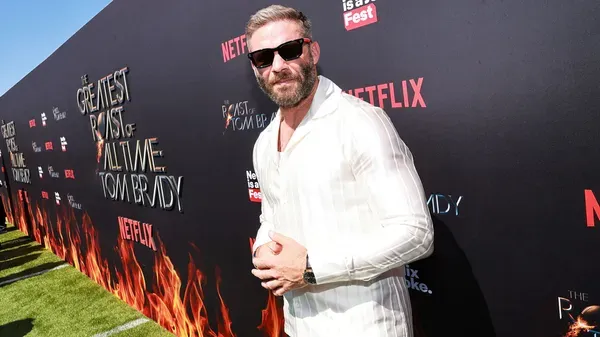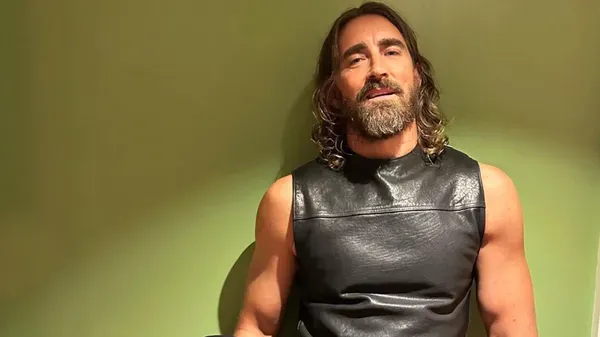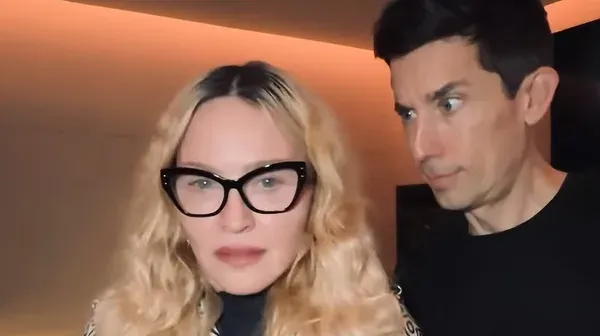Dec 6
EDGE Interview: Director Emanuel Parvu Talks About His Queer Palm-Winning Film 'Three Kilometres to the End of the World'
C.J. Prince READ TIME: 12 MIN.
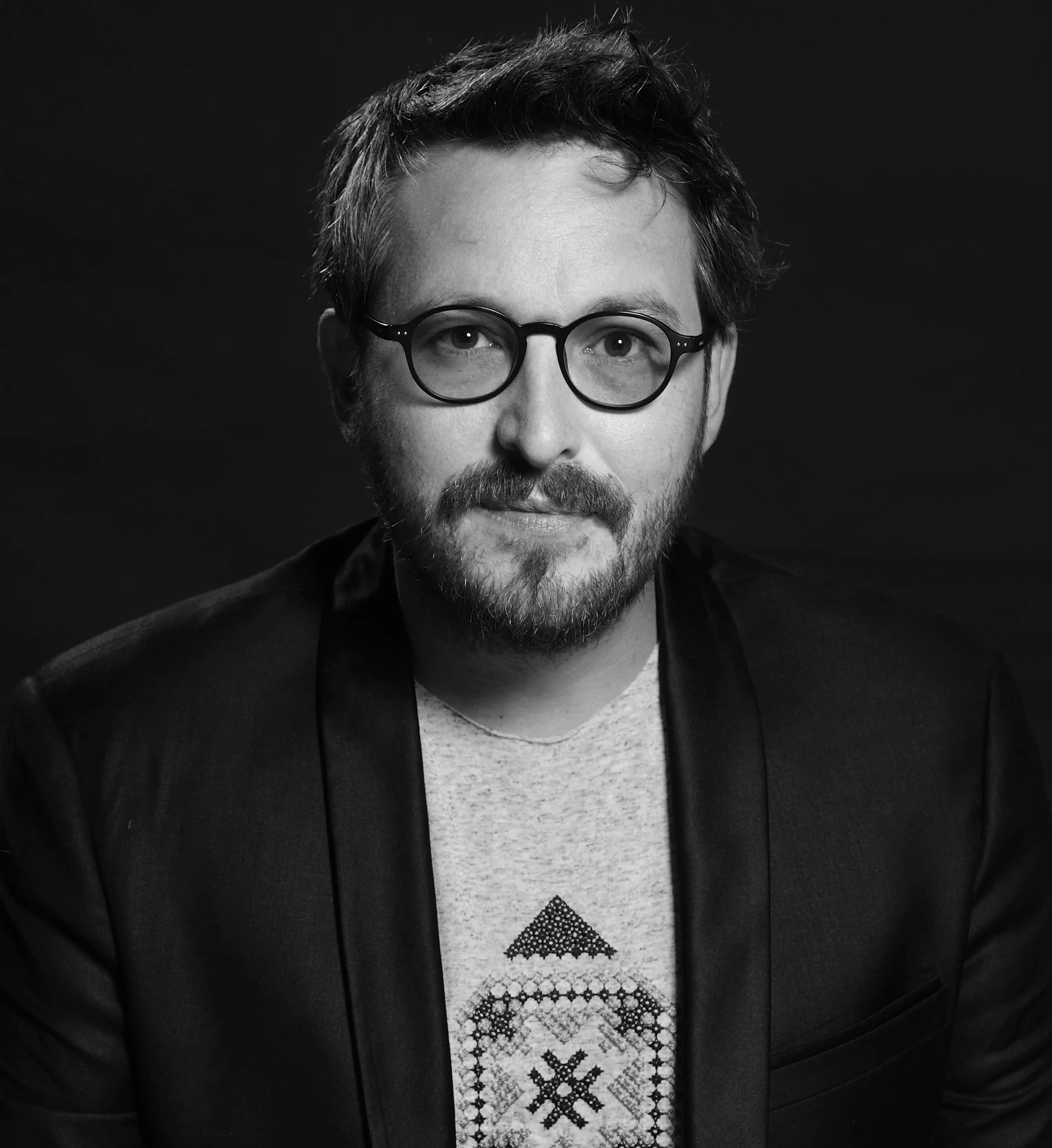
EDGE: You focus more on the positions of authority within the town, be it the police, the local priest, the parents, and Zentov, who's powerful in his own way. These people come together despite their differences to neutralize what they perceive as this threat to their way of life. This story could be set in many other areas around the world, but I wanted to know if you could talk about this in relation to your own country of Romania.
Emanuel Parvu: I'm aware that the far right is growing over Europe. And I think homophobia is present in all countries and languages. Everybody can relate to the subject. It doesn't matter if you're from Australia, United States, Europe, Africa, whatever. During my research [I asked] "Why are we attacking minorities?" And when I'm saying "we" I'm not talking about Romanians, I'm talking about all people. Our brain will always try to attack a minority from a minority position. Let's say, for instance, if I come to Canada to present the film, I will be in the position of a minority. I will be a Romanian director. That's a superficial condition, but it's still a minority position. If we get into an argument start raising our voices and insulting each other, there's a very high possibility that, if you're arguing with a Canadian, you'd say, "You're stupid." But if you're fighting with me, and your brain knows that I'm a minority, there's a very high possibility for you to say, "You're a stupid Romanian." That's the way our brain is working, and I don't know why. I think it's a thing that we still have from animals. The animals are always attacking the weak ones. We always attack a minority when we're in a fight.
EDGE: Given your background in acting, how would you describe your working relationship with your actors on set when you're in the role of a director, as opposed to when you're on set as an actor.
Emanuel Parvu: What I give to a director when I act is exactly what I ask when I'm a director. I do a lot of takes and rehearsals because I think it's very hard to be. It's easy for our brain to act. Acting means trying to present our best version in public. So, if you have 70 people from a film crew watching you as an actor, your brain will go into defense mode, and you will act. I don't want that. I want the actor to be. For a sequence it'll take me, I don't know, at least 25 to 30 takes for [the actor's] brain to relax and to say, "Okay, there's nobody judging me." I think I'm kind of a nightmare for the actors. [Laughs]
EDGE: How do the actors respond to that? It could be a positive thing because you're giving them so much space.
Emanuel Parvu: It is because I give them so much protection. For this film, we rehearsed for three months and had almost five weeks of shooting. It's as if you're playing a violin at a concert. In my opinion, you cannot play whatever you feel. You have to play the notes on the paper. You cannot say to a conductor, "I don't feel like that's a C minor. I think it's a D minor." Making a film is like music. The camera must have a certain rhythm. The actor must sing those notes at a certain pace. I'm not saying it cannot be done another way. I'm sure if I give the script to [another director] they will make a different film. But in my film, it has to be this way. I protect [the actors] on set with the film crew. In many sequences we left the camera inside the room on set, and me and the whole film crew left the room. It was only the actors in the room with the camera. I try to be relaxed for them to be as close to reality as possible.
EDGE: Did anything change during the rehearsal process? Did you adjust things through that process before shooting?
Emanuel Parvu: We did exactly this script apart from Adi's scenes. I changed the lines with Ciprian for him to be comfortable with the scenes. Apart from that and, let's say, three dragonflies and all the flies in the film, everything else is controlled. It's exactly the notes that I have written.
EDGE: Could you talk about developing the style and blocking with your director of photography Silviu Stavilã?
Emanuel Parvu: It's my third film with Silviu, and he's one of the very good, well-established DoPs in our country. We talked about [the visuals] for at least a year in terms of chromatics and blocking. You can have a texture of a costume or material that shines differently in artificial light and natural light. And in the countryside, people don't change clothes so much during the daytime. It was very hard to pick the clothes with the set designer, and with Silviu, and with the staging. And thank you for noticing [the blocking] as well. I learned [from] a technique that I saw in Yazujiro Ozu's films called the Tatami shot, [but] we changed it a bit. It starts with a deliberate, wrongly framed picture. And then, with the staging, the characters end up saying the most important lines in a perfect shot.
The hard thing was that I wanted long [takes]. I didn't want the scenes to be edited too much. For example, the last scene was hard for us to find [the location]. It had to be a very narrow canal from the beginning of the shot, and then wider until the world opens in front of Adi. I wanted that to be in one shot. We also wanted to use wide shots to contrast with the narrowmindedness [of the characters]. They were beautiful shots too, because I think it's easy to have dark times in hell. What if you're having dark times in paradise? It's more interesting to see in a beautiful place that people are living in hell. That's why I don't have any [evil] characters. I don't believe in negative characters. It's very interesting to watch a fight between good and good instead of a fight between good and evil. It's interesting when you want to do good, and tragedy still happens.
EDGE: Do you think there is a future where Adi can reconcile his relationship with his parents? Do you think they could reunite or get past their differences?
Emanuel Parvu: Absolutely. In my opinion, the love between a parent and child is the most powerful form of love. It's unbreakable. If I were in Adi's shoes, I would be very upset [with my parents]. But I can only be in the parents' shoes with my daughter. Hopefully I will be a good parent for her. She's almost 15, so I'm trying to be a good parent. I think the time for reconciliation will come after a few years. When I spoke with Ciprian and [asked] when things got better with his parents, he said when he got into university. After four years of high school, things changed [for them]. I think it'll take some years, but I think this relationship cannot be broken because, in my opinion, and in the opinions of our film crew, it's a film about love. Love is supposed to be unconditional by the definition itself.
EDGE: Earlier you mentioned the film festival in the region you made the film in, and you showed that film in the summer at the festival. What was the reaction from the community to the film?
Emanuel Parvu: Beautiful. They brought the whole village to watch the film. There were 4000 people watching the film in an open-air cinema. It was very emotional for them to see their village on the screen. At the end, they asked me if I got financed by the Ministry of Tourism. [Laughs] I said, "No, I don't think so." And they said, "Too bad, because you made this village look so beautiful."
EDGE: Given the subject matter, were you nervous that they might have gotten upset by the film?
Emanuel Parvu: Absolutely. It's not easy when you see yourself on the big screen. But when you realize that it's not about you, it's about love... If a film can make you question yourself and your actions, I think that's the purpose of a film. That's the purpose of a book, a theater play, a sculpture, a painting, to not have answers and to have so many questions. When I see a film and I see answers on the screen, for me, that film is done. I need you to question yourself. I think it's very important for us to question ourselves all the time with our actions, because I don't think we have the truth. We can stay in the same room, speak the same language, talk about the same object at the same time, and we will only have a perspective of the thing we're talking about.
EDGE: How has the film been received throughout Romania?
Emanuel Parvu: We had a national release and [the reaction] was something that we expected. The state institutions were very supportive of the film in terms of the Oscars campaign and going to so many festivals. In terms of releasing the film into cinemas, in the big cities everybody was very happy. In terms of the rural side of the country, let's say we had reactions from people that haven't even seen the film. But we had those types of reactions since Cannes, because the film only was presented in Cannes [before the release]. I got some messages on my social media regarding myself and my family from the far right. I wanted to say, "Just look at the film, I think this film is about you. Maybe you need to question yourself."
I wasn't angry at all. It didn't take me by surprise, I was expecting that. What amazed me is that we had something good [from] other people, I had messages from some film critics that told me, "I don't want to see your gay film." But after they saw the film, they had the power to write me and call me and say, "I'm very sorry about what I thought. Thank you for the film." They had the power to call me back and to write me to say [this]. It was some isolated cases, but they still existed.
